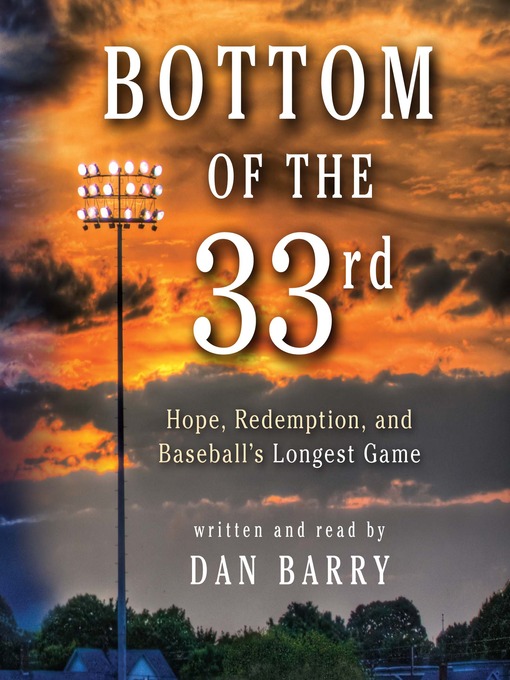"Bottom of the 33rd is chaw-chewing, sunflower-spitting, pine tar proof that too much baseball is never enough." —Jane Leavy, author of The Last Boy and Sandy Koufax
From Pulitzer Prize-winning New York Times columnist Dan Barry comes the beautifully recounted story of the longest game in baseball history—a tale celebrating not only the robust intensity of baseball, but the aspirational ideal epitomized by the hard-fighting players of the minor leagues.
On April 18, 1981, a ball game sprang eternal. For eight hours, the night seemed to suspend a town and two teams between their collective pasts and futures, between their collective sorrows and joys—the shivering fans; their wives at home; the umpires; the batboys approaching manhood; the ejected manager, peering through a hole in the backstop; the sportswriters and broadcasters; and the players themselves—two destined for the Hall of Fame (Cal Ripken and Wade Boggs), the few to play only briefly or forgettably in the big leagues, and the many stuck in minor-league purgatory, duty bound and loyal forever to the game.
With Bottom of the 33rd, Barry delivers a lyrical meditation on small-town lives, minor-league dreams, and the elements of time and community that conspired one fateful night to produce a baseball game seemingly without end. An unforgettable portrait of ambition and endurance, Bottom of the 33rd is the rare sports book that changes the way we perceive America's pastime—and America's past.





